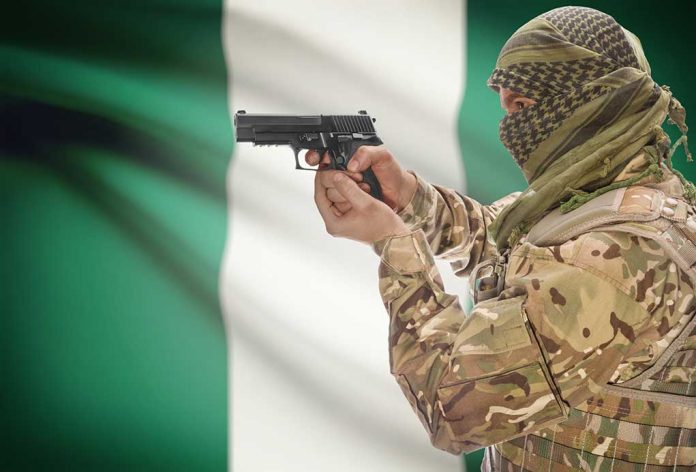
Nigeria’s Bokkos County experiences escalating violence as Fulani militias attack Christian communities, provoking calls for international help and intensifying global concerns.
Key Takeaways
- Over 60 Christians were killed in Plateau State, Nigeria, in early April 2025.
- The attacks targeted seven Christian communities in Bokkos County.
- More than 1,000 Christians were displaced, and 383 homes were destroyed.
- The violence is described as genocide by Plateau Governor Caleb Mutfwang.
- The attacks are part of a plan to drive Christian farmers from their lands.
Systematic and Targeted Attacks
In early April 2025, radicalized Fulani militants launched deadly attacks on Christian communities across Bokkos County, Plateau State, Nigeria. The assaults, particularly in Hurti village, resulted in over 60 Christian deaths, illustrating a troubling escalation in violence. The Fulani militia’s campaign has also caused the displacement of more than 1,000 individuals after destroying 383 homes. Governor Caleb Mutfwang described these attacks as genocide, a term that underscores the violence’s severity and unprovoked nature.
Calls for International Intervention
The brutality faced by these Christian communities has led to widespread condemnation and demands for international intervention. International Christian Concern President Jeff King issued a call for action, emphasizing the critical need for military intervention to dismantle the networks of these armed herdsmen. Governor Mutfwang and human rights organizations emphasized the necessity of actionable measures to restore peace.
A Growing Crisis with Global Implications
This conflict aligns with a broader pattern of attacks in Nigeria’s Middle Belt, driven by motives of land seizure and religious imposition. The involvement of Islamist militant factions has heightened the threat to Christian communities, compounding the crisis. The Fulani, primarily a Muslim ethnic group, has seen segments adopting radical ideologies, further exacerbated by Nigerian government inaction. Consequently, many displaced individuals now reside in Internally Displaced Persons (IDP) camps.
“I would say it unapologetically, what happened in the last two weeks in Bokkos is genocide — I say it unreservedly,” Mutfwang stated in an interview. “No one has given me any reason to believe that what happened was politically motivated, and if there is any such suggestion, I’ll be glad to receive the evidence of such, because these were unprovoked attacks on innocent people, vulnerable people.”
The situation in Nigeria remains precarious, with continuing violence against Christians spreading into southern states, and new jihadist groups emerging. Global attention and intervention could help mitigate these crises, but immediate and decisive actions are necessary to ensure the safety and security of these vulnerable populations.





